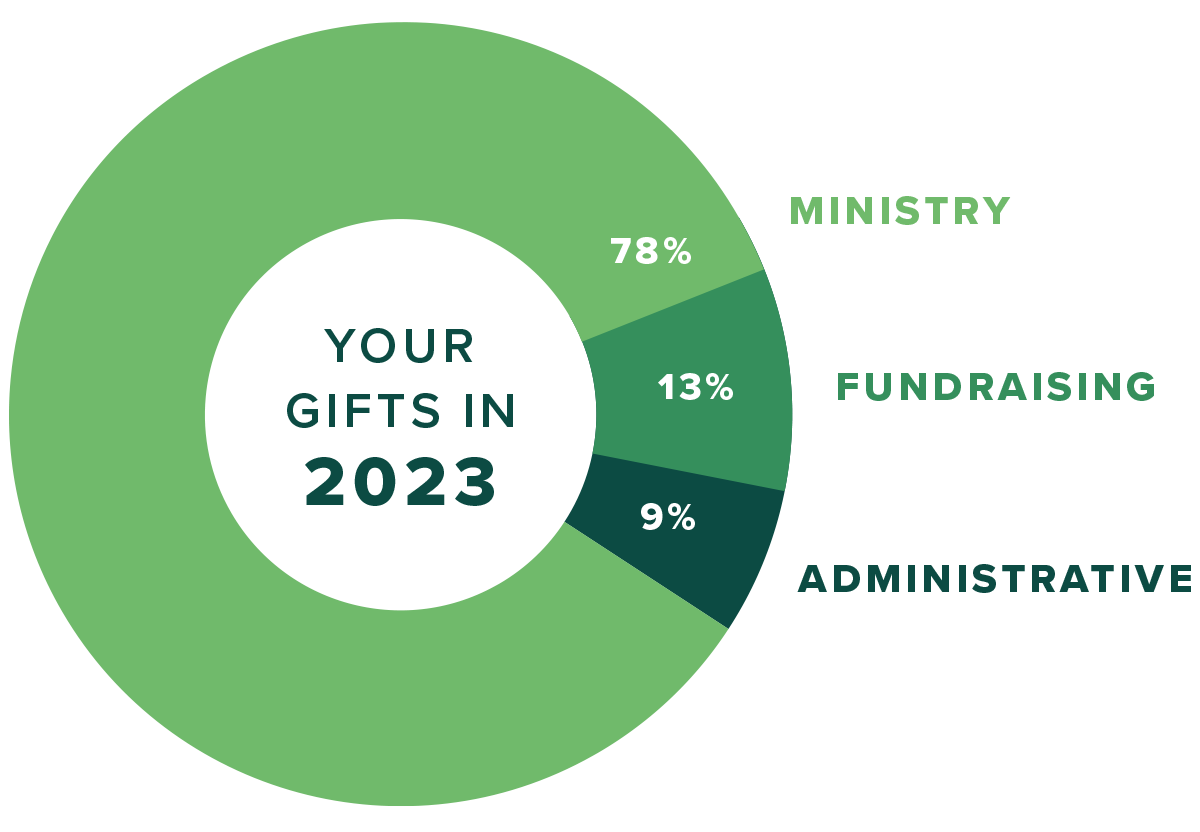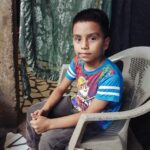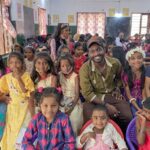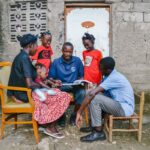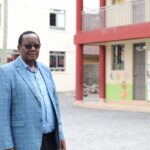Hard places hinder most children from achieving their dreams. But these kids in Kenya refuse to be held down by poverty so they build their own guitars from salvaged materials and learn how to play.
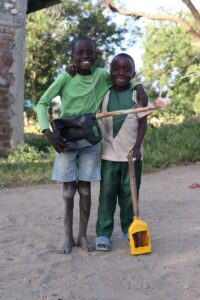
Kids at their Hope Center show off their homemade guitars.
Nurturing a child’s talent, such as playing a musical instrument, is nearly impossible for families living in poverty. Parents spend what little money they have on food and other basic needs — not expensive guitars.
So most kids in hard places tend to give up on their talents.
But the kids at Deliverance Church Kakuyuni Hope Center in Malindi, Kenya, have found a way of keeping their talents and dreams alive by making homemade guitars from salvaged items.
It all started with one child who saw a band playing guitars at a ceremony in the village and also in church.
Curiosity led the child to try to make a guitar using plastic bottles and strings. That one plastic guitar piqued the curiosity of other kids interested in music, and so they learned the skill as well.
Now at the Hope Center, a group of young boys makes guitars for themselves and for other kids who don’t know how to make them.
The church that hosts the Hope Center has a set of musical instruments, including one guitar.
Caleb, a Child Champion at the center, says they have formed a group of kids interested in music, and on Saturdays, one of the teachers trains them to play the guitar and practice their vocals.
The challenge, however, is that the kids must be allocated a limited amount of time to play the church’s guitar so that each of them gets a turn, he says.
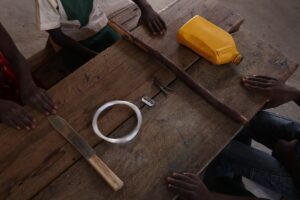
The items used by kids to make guitars include a knife, plastic container, nails, wood rod, and plastic thread.
“Most of our kids love music, and they want to spend more time on the instruments,” Caleb says. “Unfortunately, that’s impossible because they only come to the center once a week. However, their exposure to real musical instruments sparked something in them, and I believe this is what pushed them to want to own guitars of their own.
“No matter where a child is, God places in them something exceptional that makes them unique and helps them thrive.”
After a day of practicing with the church’s guitar, the kids go home and continue practicing on their homemade guitars. In the process, their skills improve.
Caleb says encouraging the kids to nurture their creativity helps boost their confidence in exploring their talent and also assures them that poverty can’t hinder them from achieving their dreams.
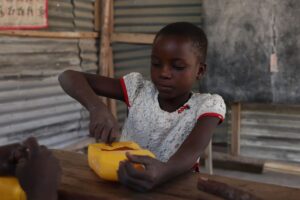
Kids use a knife to cut the plastic container.
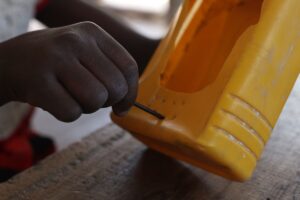
They use a nail to make holes in the cut side.
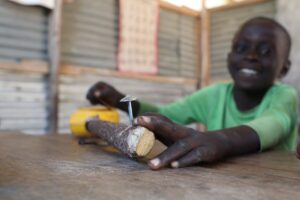
Then they tie string onto nails from one end of the guitar to the other.
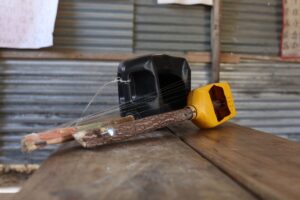
The finished products are little works of art.
“All kids are blessed, but most of the time, poverty tries to convince them otherwise,” he says.
“So we are here to affirm that they can do great things despite being in hard places, and that is why we support them in making those plastic guitars and allow them to play their guitars during events at the center and in church.”
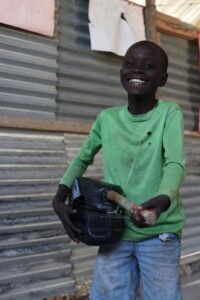
Ready to rock ‘n’ roll!
In addition to improving their skills, the kids also learn how to make use of the resources that are locally available, and this allows them to appreciate the places they are from.
They are also able to carry their guitars everywhere they go because they are light and portable, as opposed to the guitar in the church, which is too for most kids to carry.
In playing their little plastic guitars, the kids are slowly honing their skills, and soon the center will have great guitarists, Caleb says.
“If they are good at it now, what would they do if they could afford to attend a music academy or have access to modern instruments a lot more?” he asks.
Help more kids in poverty believe in themselves and their dreams. Sponsor a child today!
We are accountable to the children we serve AND to our donors.
Our accountability to our donors is one of our highest priorities. Our goal is to use the funds entrusted to us as wise stewards. To do this requires continued monitoring of our fund distribution. OneChild is also a member in good standing with the Evangelical Council for Financial Accountability (ECFA)
